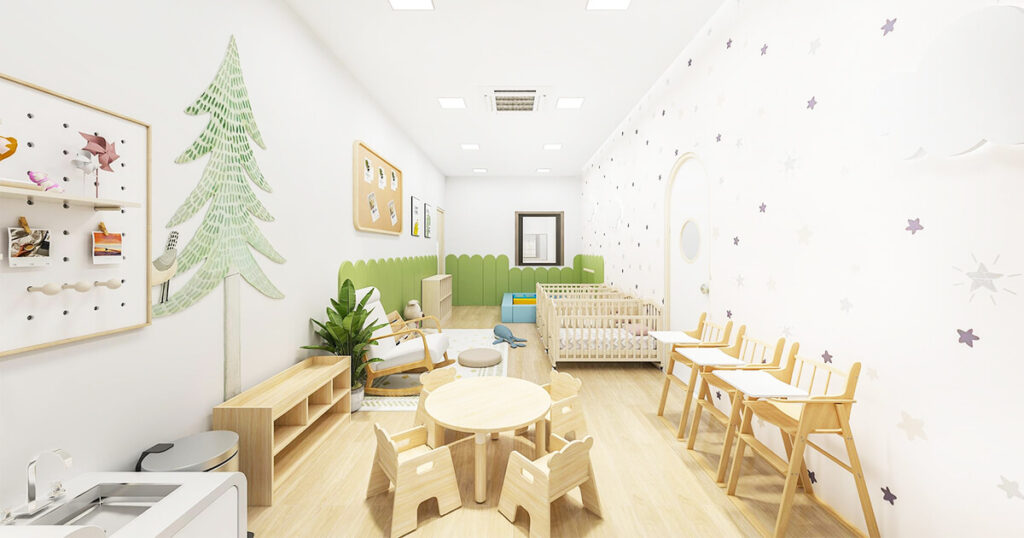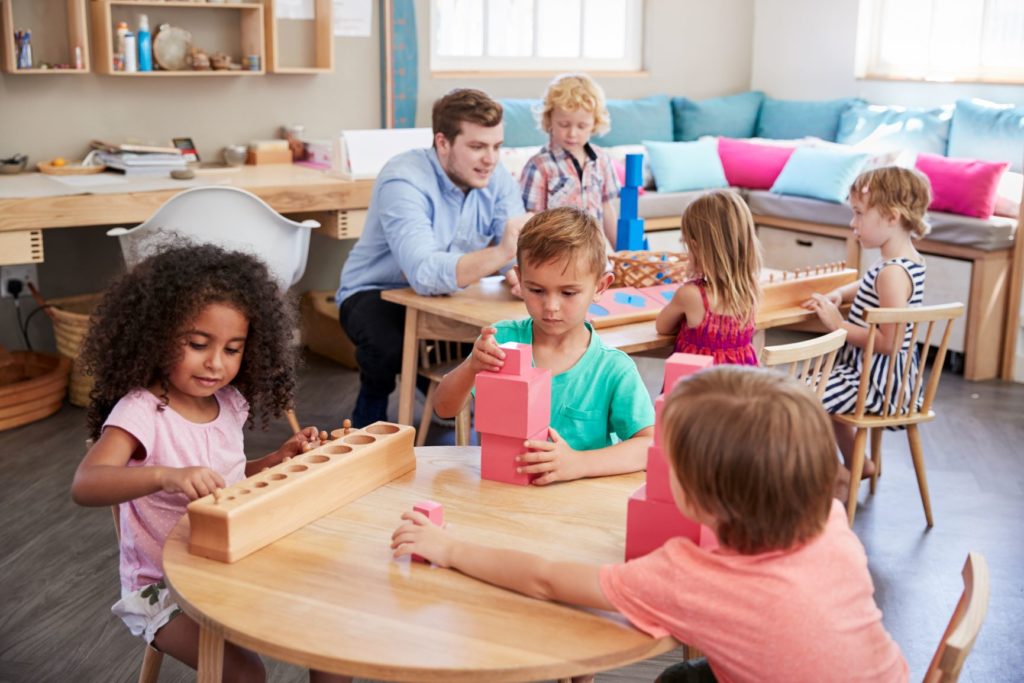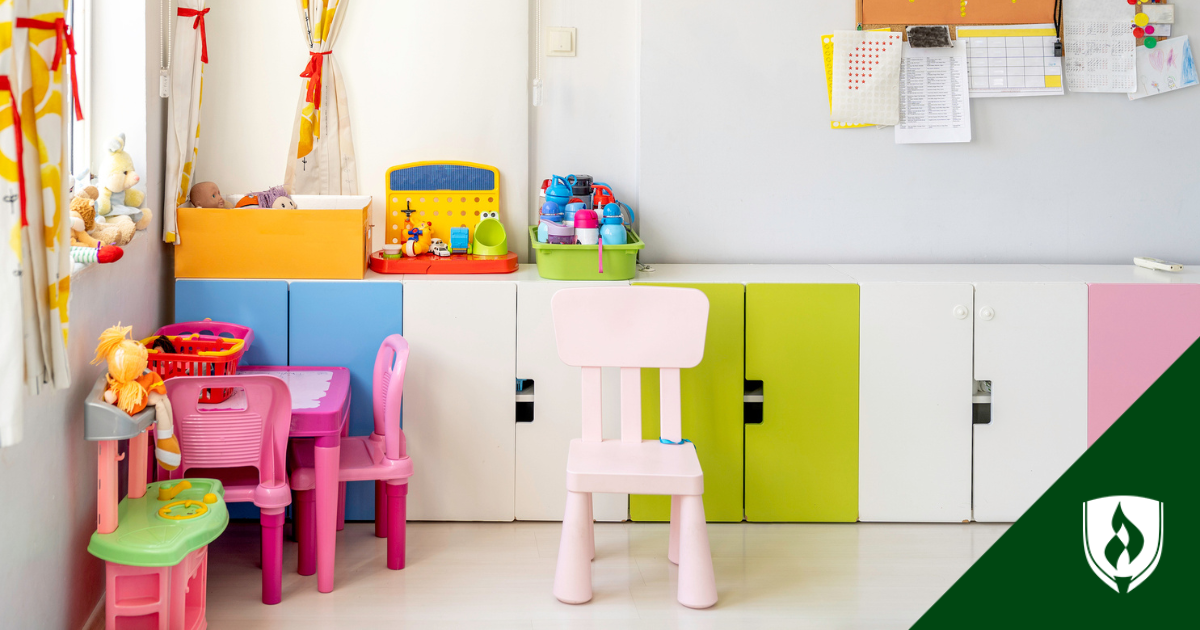Discover How Daycare North York Builds Fun Yet Safe Learning Environments
Wiki Article
The Role of Day Care in Fostering Social Abilities and Very Early Knowing
Day care acts as a considerable environment for kids, promoting important social communications that advertise very early knowing. In this structured setup, youngsters involve with peers and caregivers, establishing crucial communication and collaboration abilities. As they browse play and numerous activities, they learn to solve problems and build psychological knowledge. Comprehending the nuances of these communications discloses the extensive influence childcare carries a youngster's development, shaping their future relationships and academic readiness. What specific abilities do youngsters get in this setting?The Significance of Social Communication in Day Care
While many parents identify the significance of very early childhood years education and learning, the duty of social communication in day care is usually taken too lightly. Childcare setups supply kids with vital chances to engage with peers, fostering important social abilities. Throughout these developmental years, youngsters find out to browse numerous social characteristics, such as sharing, cooperation, and problem resolution. Connecting with varied age groups and personalities improves their ability to adjust to different environments and create compassion towards others.
Structure Interaction Abilities With Play
Play functions as a powerful medium for children to build vital interaction abilities in day care setups. Via numerous play activities, kids engage in conversations, express their thoughts, and learn to listen to others. Parlor games, for instance, urge them to use language in different contexts, promoting vocabulary expansion and understanding of social cues.
Storytelling during play permits children to communicate emotions and ideas, assisting them establish narrative abilities and self-confidence in their verbal expressions. On the whole, play not only acts as an enjoyable pastime however additionally as an important platform for establishing the interaction abilities necessary for successful social interactions in later life.
Motivating Participation and Team Effort
Teamwork and synergy are important abilities that youngsters can grow in childcare settings. Via various group tasks, such as building projects or collaborative video games, youngsters find out to share responsibilities and work towards common goals. These communications foster an understanding of the significance of listening to others, working out roles, and compromising when required.In day care setups, caretakers frequently create possibilities for children to participate in team effort by motivating them to participate in team jobs. This not only aids children create social bonds yet additionally grows a sense of belonging and neighborhood.
As they browse these participating experiences, kids get beneficial insights into the characteristics of functioning with peers. They discover to value diverse perspectives and identify that each participant adds distinctly to the group initiative. Ultimately, these very early lessons in participation and teamwork lay the foundation for healthier connections and effective cooperation in future social and academic setups.
Structured Knowing Activities and Cognitive Development
Structured understanding activities play an important duty in cultivating cognitive development in kids (Child Care Center). These tasks, that include problems, narration, and hands-on experiments, boost important thinking and problem-solving abilities. In a day care setting, structured learning motivates children to engage with their peers, improving their capacity to process details and understand various ideas
With guided play and interactive jobs, youngsters develop foundational abilities investigate this site such as numeracy and literacy. Activities centered around numbers can assist youngsters understand mathematical ideas, while storytelling boosts language procurement and understanding. Additionally, organized knowing enables instructors to analyze developmental progression and dressmaker tasks to specific knowing needs.

Integrating a diverse array of structured tasks not just advertises cognitive growth however likewise prepares kids for future academic success. By providing a well balanced environment that promotes exploration and query, day care programs play an essential duty in forming the cognitive abilities of young students.
Fostering Emotional Knowledge and Self-confidence
Psychological intelligence and self-confidence are necessary elements of a youngster's advancement, enhancing the cognitive abilities cultivated via structured knowing activities. In childcare setups, kids are given with chances to express their emotions and engage in social communications, which are important for building psychological recognition. Via directed play and group activities, youngsters learn to identify their sensations, identify those of others, and create empathy.Moreover, interaction with caregivers and peers assists to grow self-confidence and durability. a knockout post Positive support and support from adults equip kids to take threats and face obstacles, promoting a sense of accomplishment. As they navigate social dynamics, kids construct confidence in their abilities to interact, team up, and fix problems - Child Care Center. This nurturing atmosphere enables the gradual development of emotional intelligence, which is vital for future social partnerships and total well-being. Because of this, day care plays a significant duty in promoting both psychological knowledge and confidence in little ones
Regularly Asked Concerns
Just How Can Parents Pick the Right Childcare for Their Kid?
Moms and dads ought to consider variables such as area, personnel qualifications, security standards, curriculum, and reviews from various other parents when picking the right childcare for their child, guaranteeing it aligns with their youngster's developing requirements and family members worths.
What Age Is Finest for Starting Daycare?

Exactly How Does Childcare Effect Kid's Actions at Home?
Daycare often positively affects children's behavior in your home by improving social skills, promoting self-reliance, and encouraging psychological regulation (Childcare North York). Consequently, kids may exhibit improved communication and cooperation, resulting in more harmonious family characteristicsExist Any Kind Of Disadvantages to Day Care Participation?
Yes, there are drawbacks to day care attendance, consisting of prospective splitting up anxiety, direct exposure to diseases, and inconsistent caregiving. These aspects can affect a child's psychological well-being and modification at home, impacting overall household dynamics.How Can Parents Assistance Social Abilities Discovered at Childcare?
Parents can support social abilities learned at daycare by facilitating playdates, urging cooperative activities, modeling favorable interactions, reviewing feelings, and reinforcing sharing and communication in your home, therefore enhancing their child's social development and confidence.Day care offers as a substantial setting for young children, promoting essential social interactions that advertise very early discovering. Childcare settings give children with important visit our website possibilities to engage with peers, promoting necessary social skills. Play offers as a powerful tool for kids to build critical interaction skills in daycare setups. In day care settings, youngsters are offered with possibilities to express their emotions and engage in social communications, which are crucial for developing psychological recognition. Daycare commonly favorably influences children's actions at home by enhancing social skills, promoting self-reliance, and motivating psychological law.
Report this wiki page